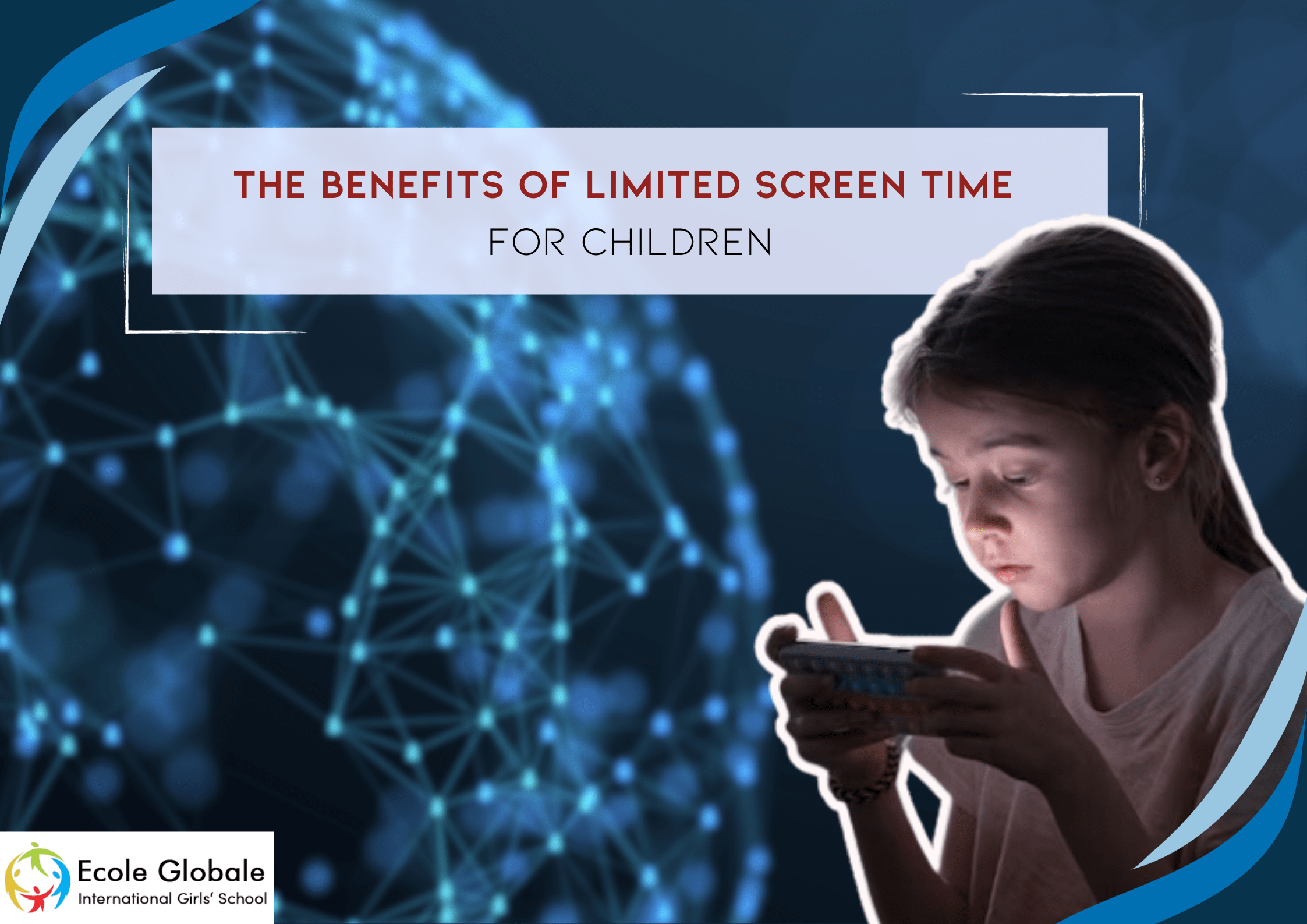In the fast-paced and ever-evolving landscape of the digital age, children are navigating a world that is vastly different from what previous generations experienced. The digital era presents both unprecedented opportunities and unique challenges for the younger generation, shaping their lives in ways that were once unimaginable. There can be benefits of screen time and some benefits of limited screen time.
One of the defining aspects of the digital age for children is the prevalence of technology in their daily lives. From smartphones and tablets to laptops and smart devices, children are growing up surrounded by digital tools that offer instant access to information, entertainment, and communication. This digital immersion has redefined how children learn, play, and interact with the world around them.
The Benefits of Limited Screen Time for Children
![]()
Education has undergone a significant transformation in the digital age. Traditional classrooms are now supplemented, if not replaced, by online learning platforms, interactive educational apps, and digital resources. Children have the opportunity to explore subjects in innovative ways, collaborate with peers globally, and access a wealth of information at their fingertips. The digital age has democratized knowledge, making learning more accessible and personalized.
However, with the digital revolution come concerns about screen time and its impact on children’s health and well-being. Striking a balance between leveraging technology for educational purposes and ensuring healthy offline activities is a crucial challenge for parents and educators. The importance of promoting digital literacy and responsible online behaviour is paramount to equip children with the skills needed to navigate the digital world safely. There are soo many benefits of limited screen time.
The digital age has also reshaped how children socialize and communicate. Social media platforms, messaging apps, and online gaming communities have become integral parts of their social lives. While these digital connections offer new ways to build friendships and stay connected, it’s essential to educate children about the importance of real-world interactions, empathy, and responsible digital citizenship.
Creativity and self-expression find new outlets in the digital age. Children can explore their artistic talents through digital art, music production, and creative writing platforms. The digital realm provides a canvas for innovation and allows children to showcase their ideas to a global audience, fostering a sense of empowerment and confidence.
In an era dominated by digital devices and screens, the benefits of limited screen time for children may seem like a challenging task. However, the benefits of limited screen time profound and play a crucial role in the overall well-being and development of young minds.
Physical health

First and foremost, benefits of limited screen time promotes physical health. Excessive screen time is often associated with a sedentary lifestyle, contributing to issues like obesity and related health problems. Encouraging children to engage in physical activities, play outdoors, and participate in sports not only fosters a healthier lifestyle but also aids in the development of essential motor skills.
Life skills

Cognitive development is another area positively impacted by reduced screen exposure. Excessive screen time, especially in the form of passive entertainment, can hinder a child’s ability to focus, concentrate, and engage in critical thinking. Benefits of limited screen time are that parents and caregivers create opportunities for children to explore their surroundings, read books, and engage in imaginative play—all of which contribute significantly to cognitive development.
Social skills are nurtured when children have less screen time. Face-to-face interactions are fundamental for developing communication skills, empathy, and emotional intelligence. By spending more time engaging with family, friends, and peers in real-life scenarios, children learn valuable social cues and build stronger interpersonal relationships. That’s why there are soo many benefits of limited screen time.
Creativity flourishes in the absence of constant screen stimulation. When children have limited screen time, they are more likely to explore their creativity through activities like drawing, crafting, and imaginative play. These experiences contribute to the development of problem-solving skills, innovation, and a sense of self-expression.
Quality sleep

Quality sleep is essential for the growth and development of children, and excessive screen time, especially before bedtime, can interfere with sleep patterns. Some benefits of limited screen time exposure in the evening helps regulate sleep, ensuring that children get the rest they need for optimal physical and cognitive functioning.
Additionally, benefits of screen time reduction promotes a healthier balance in the use of technology. While technology is an integral part of modern life, it’s crucial to strike a balance and encourage children to use screens responsibly. Teaching them the importance of moderation sets the foundation for a healthy relationship with technology as they grow older.
Conclusion
The benefits of limited screen time for children are extensive and impact various aspects of their well-being. From physical health to cognitive development, social skills, and sleep quality, a balanced approach to screen time sets the stage for a healthier, happier, and more well-rounded childhood. Parents and caregivers play a vital role in guiding children toward a balanced and mindful use of technology, ensuring that screens complement, rather than dominate, their overall growth and development.
Parental involvement and guidance are crucial in helping children navigate the complexities of the digital age. Open communication, setting benefits of limited screen time, and being actively involved in their online activities contribute to a healthy digital experience. Embracing technology as a tool for learning and creativity, while also instilling values of responsible use, ensures that children can harness the full potential of the digital age while maintaining a balanced and fulfilling lifestyle.
In essence, the digital age for children is a double-edged sword, offering unprecedented opportunities for growth and learning, but also posing challenges that require thoughtful navigation. By fostering a positive and informed approach to technology, society can empower the younger generation to thrive in an increasingly digital world.









